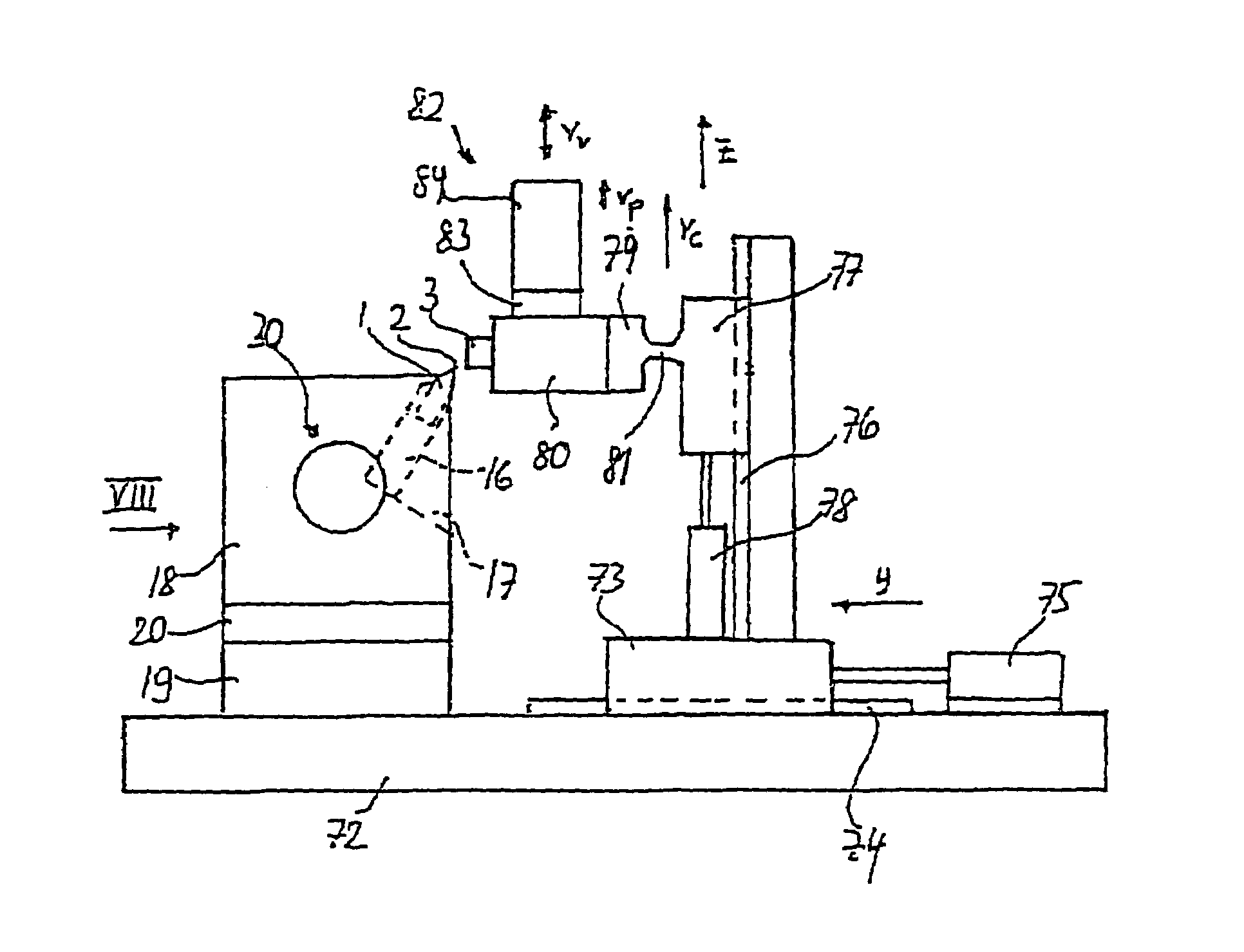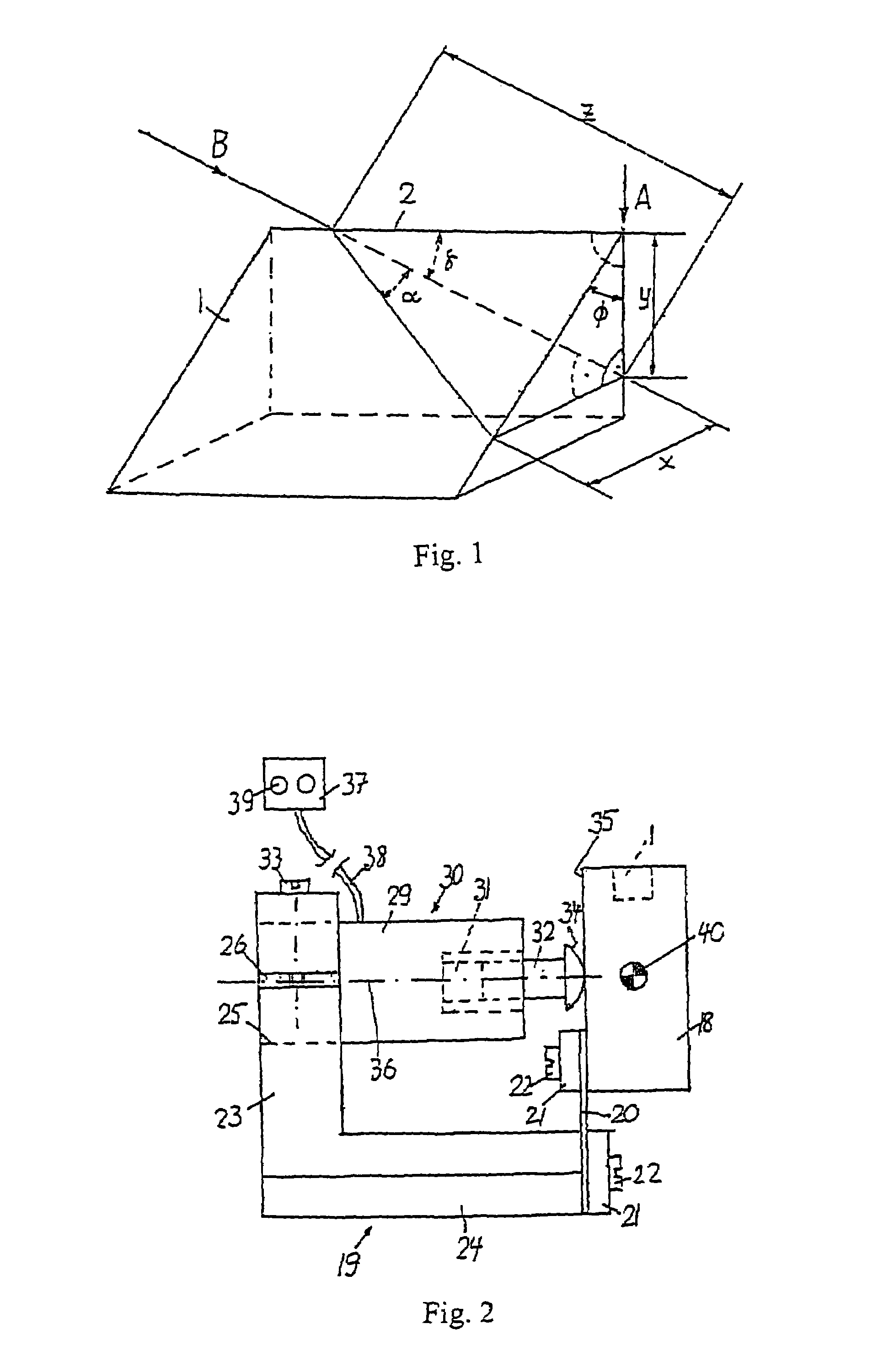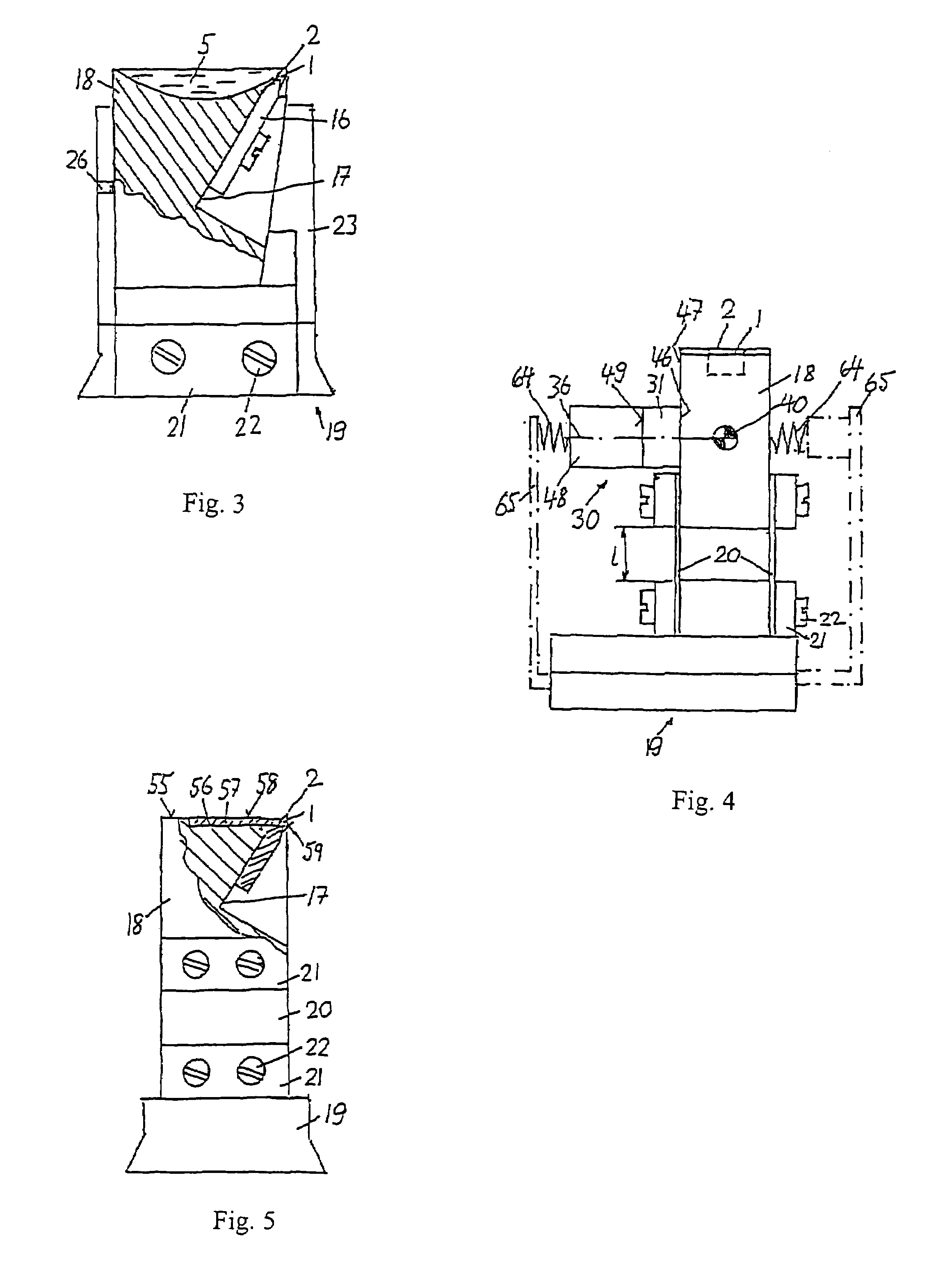Ultramicrotome device
a microtome and ultrasonic technology, applied in the field of ultrasonic devices, can solve the problems of affecting cutting, extreme care must be taken to shield, etc., and achieve the effect of reducing or eliminating the compression of sections
- Summary
- Abstract
- Description
- Claims
- Application Information
AI Technical Summary
Benefits of technology
Problems solved by technology
Method used
Image
Examples
first embodiment
[0032]the invention is shown in FIGS. 2 and 3. The blade 1 is sintered in a bronze holder 16 or vacuum brazed in a tungsten carbide holder. The holder 16 is mounted on an inclined face of a recess 17 in a block 18. The block 18 is mounted to a holder 19 by means of a leaf spring 20. The plane of the leaf spring 20 is substantially vertical and perpendicular to the cutting edge 2. The spring 20 is mounted to the block 18 and the holder 19 by flat plates 21 and screws 22. Alternatively, the spring 20 may be designed as an integral part of the block 18 and the holder 19.
[0033]An arm 23 extends upward from the base 24 of the holder 19. The arm 23 has a cylindrical horizontal boring 25 and a slot 26 on one side. The cylindrical housing 29 of a vibrator 30 with a piezoelectric transducer 31 and an actuating rod 32 is held in the boring 25 by means of a screw 33. The spherical face end 34 of the rod 32 is slightly pressed against a plane face 35 of the block 18. The axis 36 of the vibrator...
third embodiment
[0040]FIGS. 6 and 7 show a Similar parts are again designated with the same reference numerals. In this embodiment, the holder 19, the block 18 and the leaf spring 20 are manufactured from a single piece of metal. The spring 20 is a web connecting the holder 19 and the block 18. The holder 19 is mounted on a base 72. In operation, the block 18 oscillates with an amplitude ao and with a frequency in radians ω=2π·ν, wherein ν is the frequency in Hz, in a horizontal first direction x parallel to the cutting edge 2. The oscillating movement is ao sin ωt and the oscillating speed vh is ao ω cos ωt.
[0041]A first slide 73 is slidably guided on first guide rails 74 of the base 72 which extend in a horizontal second direction y perpendicular to the first direction x. The movement of the slide 73 is controlled by a first actuator 75 for stepwise advance of the probe 3 towards the cutting edge 2 between successive cuts. Second guide rails 76 are mounted on the slide 73 and extend in the verti...
PUM
| Property | Measurement | Unit |
|---|---|---|
| thickness | aaaaa | aaaaa |
| frequency | aaaaa | aaaaa |
| thickness | aaaaa | aaaaa |
Abstract
Description
Claims
Application Information
 Login to View More
Login to View More - R&D
- Intellectual Property
- Life Sciences
- Materials
- Tech Scout
- Unparalleled Data Quality
- Higher Quality Content
- 60% Fewer Hallucinations
Browse by: Latest US Patents, China's latest patents, Technical Efficacy Thesaurus, Application Domain, Technology Topic, Popular Technical Reports.
© 2025 PatSnap. All rights reserved.Legal|Privacy policy|Modern Slavery Act Transparency Statement|Sitemap|About US| Contact US: help@patsnap.com



